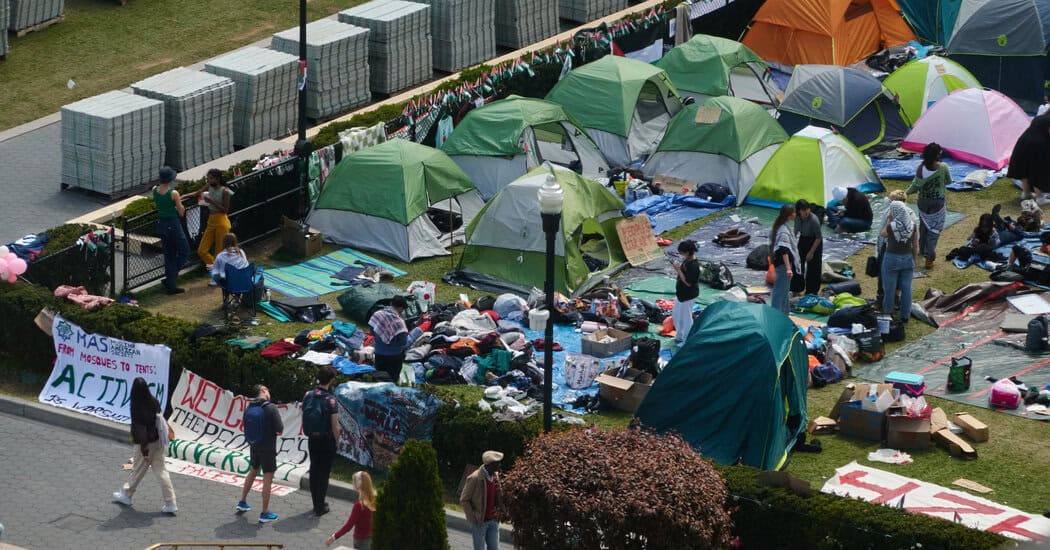
Columbia Tells Protesters to Clear Out Encampment or Face Suspension
Columbia University has given students until 2 p.m. on Monday to clear out from the pro-Palestinian encampment that has occupied a central lawn on its campus for nearly two weeks, warning them that they will face immediate suspension if they do not leave by then.
The move is an attempt to clear the encampment without calling in the Police Department, whose intervention on April 18 at the request of Columbia administrators led to more than 100 student arrests and incited an international movement to build similar encampments on dozens of university and college campuses.
Students in the encampment on Monday morning received a notice from administrators stating that negotiations with student protest leaders were at an impasse. It urged the students to clear out voluntarily to allow the school to prepare the lawn for graduation ceremonies on May 15.
“The current unauthorized encampment and disruption on Columbia University’s campus is creating an unwelcoming environment for members of our community,” the notice stated. “Please promptly gather your belongings and leave the encampment.”
Students will be not be punished for their participation in the encampment if they sign a form promising not to break any university rules through the end of the next academic year. Students in the encampment who already face discipline from previous violations, but who are there anyway, may not be eligible for the same deal, the document stated.
The notice also warned students that they might still be held accountable for discrimination and harassment charges stemming from their involvement in the encampment even if they did sign the form.
For those who do not leave, it was not immediately apparent how Columbia would enforce the clearing of the encampment. Last Friday, Nemat Shafik, Columbia’s president, in a statement to the community, all but ruled out calling in the Police Department again to clear the space.
“We called on N.Y.P.D. to clear an encampment once,” she wrote, in a notice co-signed by the co-chairs of Columbia’s board of trustees, “but we all share the view, based on discussions within our community and with outside experts, that to bring back the N.Y.P.D. at this time would be counterproductive, further inflaming what is happening on campus, and drawing thousands to our doorstep who would threaten our community.”
Mahmoud Khalil, a graduate student and the lead negotiator on behalf of Columbia University Apartheid Divest, the student coalition that has organized the encampment, called the deadline “just another intimidation tactic from the university.”
“The university is dealing with this matter as a disciplinary issue, not as a movement to divest from war,” he said.
He said the encampment would be holding a meeting at noon to discuss next steps. Last week, when the university threatened to crack down, but then backed off to allow time for negotiations to play out, some students opted to stay and others to leave.
Anna Betts contributed reporting.